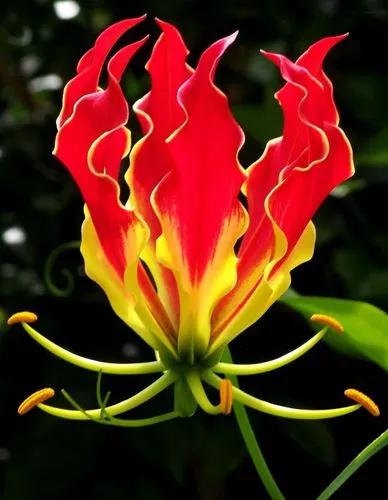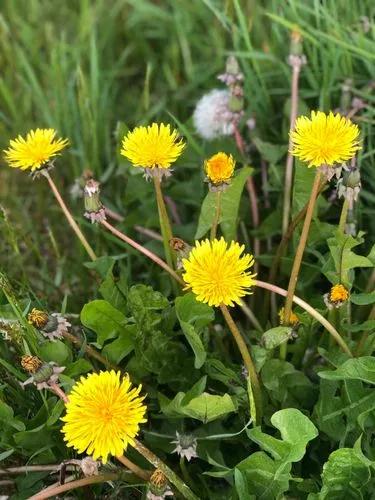The bedding dahlia is an annual and is easiest to grow as new plants are often raised from seed and it requires little attention after planting out. Always dig in organic matter before planting out and dead head regularly to prolong the flowering. Dahlias are thirsty and hungry plants. Water in dry weather and occasionally feed with liquid fertiliser. A well drained fertile soil is needed as is a sunny spot.'Bishop's Children' is a mix of bright coloured single flowered dahlias
Dahlia Hybridum 'bishop's Children' Care
Dahlia Hybridum 'bishop's Children'



How to Care for the Plant

Water

Dahlia—especially young plants—do not need a ton of water in order to thrive. In fact, over-watering the plant actually poses more of a potential issue, as excessive water can cause them to rot. Because the roots of the dahlia are close to the surface of the soil, typical summer rainfall can usually suffice. If you get less than one inch of rain in seven days (or are dealing with especially hot temperatures), plan to supplement with additional watering. However, with dahlias, it's important to never let the soil dry out. Because they're not deep-rooted, dry soil equals a dry plant.

Pruning

When plants are about 1 foot tall, pinch out 3-4 inches of the growing center branch to encourage bushier plants and to increase stem count and stem length.

Fertilizer

Dahlias benefit greatly from being treated with fertilizer—the more food they get, the larger roots they will grow, and subsequently the bigger (and more numerous) their flowers will be. Whatever type of fertilizer you choose, look for one with a low nitrogen ratio, and don't fertilize after August. You are going to be digging and storing the tubers soon and you want them ready to go dormant.

Sunlight

In order to flower well, dahlias need full sun, preferably at least six to eight hours a day. In hotter climates, (primarily USDA zones eight and up) they will do better with a bit of shade during the peak afternoon hours when the sun is especially hot, and therefore can risk burning the plants.

Soil

Dahlias like a rich, well-draining soil with plenty of organic matter and a fairly neutral soil pH around 6.5. If you are planting your dahlia tubers ahead of time in containers, mix in a bit of garden soil for better moisture retention—potting soil can dry out quickly and it's especially important that the tubers stay moist until they have sufficient roots.

Temperature

Timing is especially important when it comes to planting and growing dahlias, as they'll struggle to establish in cold soil. Wait until your final spring frost has passed and the ground temperatures have reached around 60 degrees Fahrenheit (you can get your tubers started indoors ahead of time if you'd like).

Additional

Toxic to dogs, toxic to cats

Popularity

113 people already have this plant 25 people have added this plant to their wishlists
Discover more plants with the list below
Popular articles






